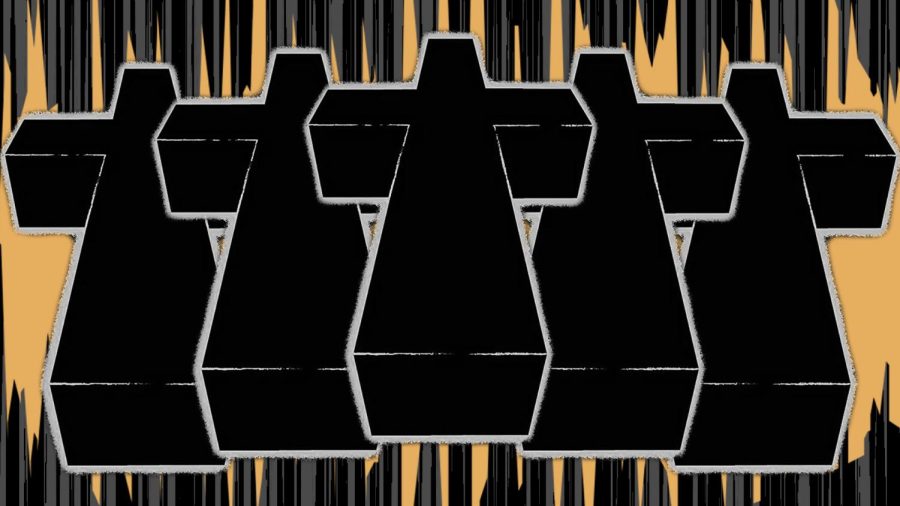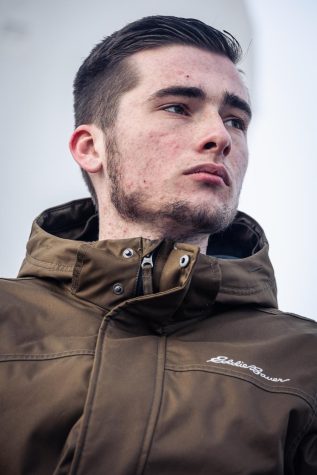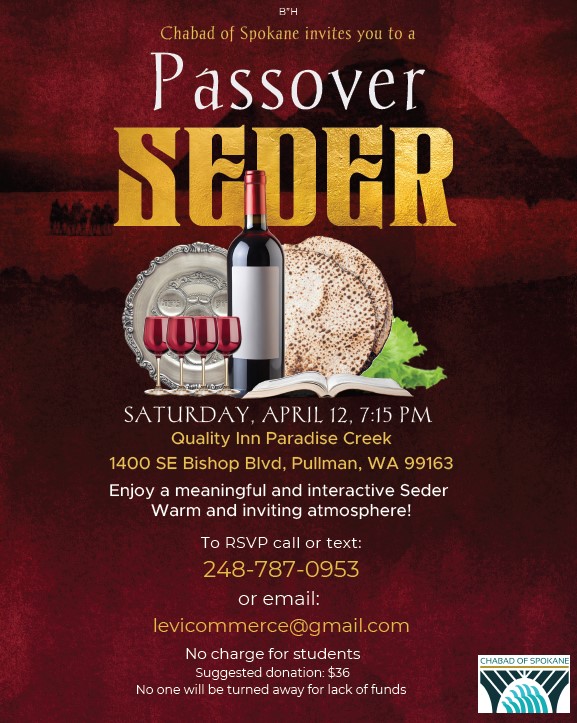Album review: ‘Cross’ Justice, 2007
The French house duo’s debut project provides listeners with an unrelenting barrage of pure adrenaline.
The track then explodes into a section of what sounds like electronic lawnmowers struggling to ignite.
March 23, 2023
Score: 8.7/10
During the 2000s, a particular style of electronic music started garnering popularity. The electronic music called French house swept through radio waves and charts. The most famous artist of this waver is undoubtedly Daft Punk, with albums like “Discovery” showcasing some of the best the genre has to offer.
However, there is one artist who I think truly knocked it out of the park when it comes to French house. Not only did this particular act’s debut album perfect the genre, but every track was made in GarageBand.
Justice is an electronic duo hailing from France, comprised of Gaspard Augé and Xavier de Rosnay. The duo signed with Ed Banger Records and released their debut album “Cross” in 2007.
The album has a unique sound compared to other electronic and French house records. There is a heavy emphasis on bass and loud synths, often distorting into white noise.
Their debut project not only saw the peak of electronic music in the 2000s, but also saw the height of the band’s catalog. Their other two LPs dropped in 2011 and 2016 are not as raw as their very first project. The tracklist on this album is uncanny and hard-hitting.
The opening track “Genesis” begins with a raging timpani and horn sample that then immediately dives into a groovy synth section. The programmed slap bass is audible and adds an extra boost to the song.
The track then explodes into a section of what sounds like electronic lawnmowers struggling to ignite. The track is a perfect start to the album, as it already sends the listener into a dancing frenzy.
The transition between “Genesis” and “Let There Be Light” is practically unnoticeable and showcases one of the album’s main quirks. A lot of tracks on this project have uncut transitions. All over the album, each track perfectly launches itself into the other. The production choice works brilliantly as it creates a strong bond between each track.
A couple of tracks on the record feature vocals, most notably on the hit song “D.A.N.C.E.” Most of the vocals are provided by unnamed artists; the ones on “D.A.N.C.E” are supplied by the Foundation for Young Musicians Choir in London.
“D.A.N.C.E” is an attempt by the band to create a Michael-Jackson-like song for the record, and pretty much nails the sound perfectly.
The vocals on the “DVNO” and “The Party” sound a bit off compared to “D.A.N.C.E,” sounding more like parodies than genuine vocals. It’s pretty much the only complaint I have on the record since the instrumentation on each track saves them from complete mediocrity.
The two best tracks on the album are saved until near the very end. “Stress” and “Waters of Nazareth” encapsulate why I love the project so much. “Stress” samples a track from “Saturday Night Fever” to create a looming sense of dread that permeates through the music. In a way, it sounds like a disco remix of a horror movie theme song.
The track then suddenly ends with an outro that explodes into what sounds like a broken speaker system. The incredibly crunchy tone of “Waters of Nazareth” begins to loop a melody that is sure to get stuck in the listener’s head.
The crunch of the synths combined with the hard-hitting drum machine all culminate into the best track on the album. The sheer volume of the track is not only enough to make the listener get up off their feet, but break their speaker system as well.
“Cross” is a timeless staple of the French house genre, and I would argue that this album is better than the child of the genre, “Discovery” by Daft Punk. The album supplies more energy, more experimentation and catchier melodies. The album contains every little essence of what makes French house such an intriguing part of electronic music.











